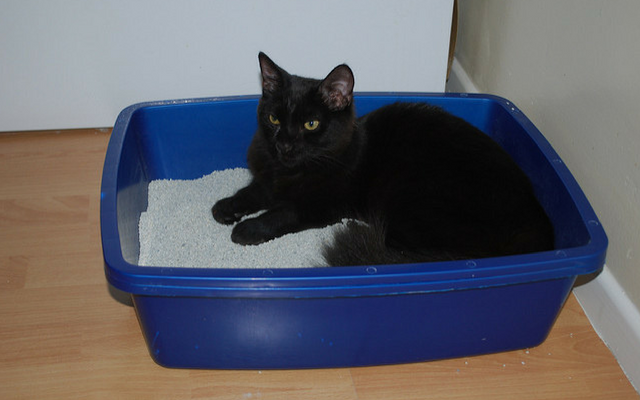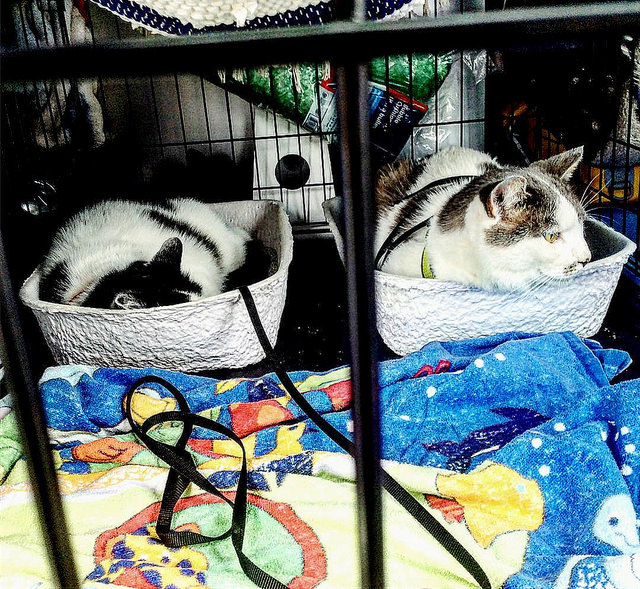Cats are known for sleeping in strange places—boxes, bathroom sinks, shoes—but a cat that prefers to sleep in the litter box is a different story. The first time it happens, you’re tempted to grab your camera to document the oddity, but it’s important to realize it’s a stinky and unsanitary habit. It could be physical or emotional, but sleeping in the litter box is a sign of a real problem. Here are a few common reasons why cats start sleeping in their litter boxes and how you can change the behavior.

They’re Sick
A person who spends extended amounts of time in the bathroom is probably experiencing some kind of health issue, and the same goes for your cat. Cats start spending more time in the litter box when they’re not feeling well so they have easy access to the bathroom. They want to be close by in case of an urgent need, and it’s easier to sleep in the box than risk roaming too far away.
Common illnesses that could lead to this behavior are urinary tract infections, bladder infections, and kidney stones. If you suspect a health issue, visit the vet as soon as possible.

They Don’t Feel Safe
The smell permeating from the litter box isn’t always pleasant, but for a cat, it’s comforting. It smells just like them, and when they’re stressed or feeling unsafe, they turn to the haven of their litter box. Cats in shelters often exhibit this behavior because they’re scared and stressed about being in a new place. There are so many new smells overwhelming their senses, and breathing in the familiar aroma of the litter box can calm their nerves.
Pet cats may also start doing this if there’s a sudden change in their home environment. A new dog, a new cat, a new baby, or moving to a new house could be to blame. If that’s the case, try offering your kitty a cleaner and more appropriate place to hide out. Set up a carrier or box in a quiet place in the house where they can feel safe from whatever is bothering them.

They’re Guarding Their Property
A cat who has to share a litter box with a family’s other felines may feel the need to defend what they view as their property. Cats with alpha personalities that aren’t interested in sharing stand guard over the litter box in order to fight off or deter others from getting close. A timid cat being bullied by other cats might sleep in the litter box because they’re afraid if they leave, they won’t get another chance to come back.
The best solution in this case is to add more litter boxes to the home. Some cats are cooperative enough to share their space, but others prefer absolute privacy. You might also start to notice your cat refusing to use the litter box if another cat was recently inside. A litter box per cat with an extra one in a mutual location usually makes everyone happy.
Besides the obvious concern of sleeping in filth, litter boxes house unknown bacteria and are literal breeding grounds for disease. You can help stave off possible health issues by regularly cleaning out the litter, but spending excess amount of time in the box will always put your cat at risk. If you’re not sure which of these categories your cat falls under, your veterinarian may be able to provide valuable insight.
